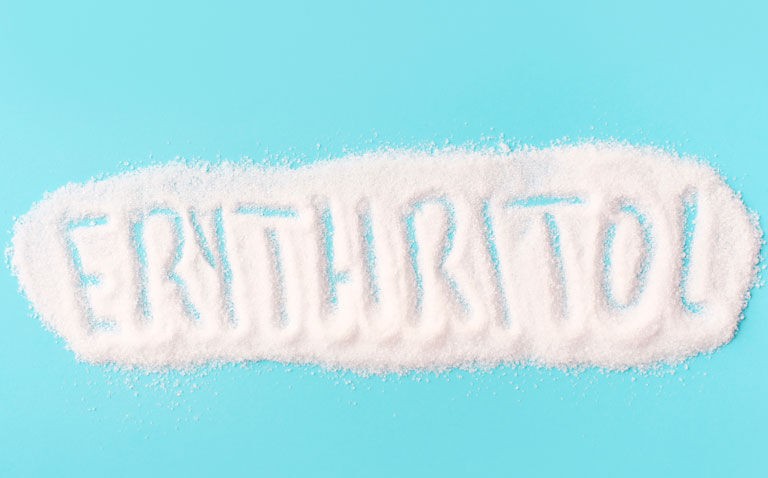A higher intake of erythritol is linked to an increased risk of a major cardiovascular adverse event in those undergoing cardiac evaluation
Elevated plasma levels of the artificial sweetener erythritol, in patients undergoing cardiac risk assessment is associated with an increased 3-year risk of a major cardiovascular event according to the findings of an analysis by an international research group.
Low calorie artificial sweeteners are widely found in food and drinks and some of the most thoroughly tested and evaluated of all food additives. However, there is some evidence to suggest a significant association between intake of artificially sweetened soda consumption and obesity and to an increased risk of all-cause mortality. Nevertheless, a 2017 scoping review was unable to offer conclusive evidence for either beneficial or harmful effects of artificial sweeteners on several adverse health outcomes.
Erythritol is a sugar alcohol and commonly used as a sugar substitute and there is actually data indicating how acute consumption improves small vessel endothelial function whereas chronic use reduces central aortic stiffness. In contrast, other work suggests an association between erythritol and incident diabetes. Despite these findings, little is known about the relationship between erythritol and both cardiovascular disease and atherothrombotic complications and this was the purpose of the current study. Researchers initially measured plasma levels of the artificial sweetener among US patients undergoing elective diagnostic cardiac evaluation (which they referred to as the ‘discovery cohort’) and then compared the findings with results obtained from a second US and European cohort also undergoing cardiac evaluation.
Erythritol levels and incident MACE
In the discovery cohort with 1,157 patients, circulating levels of erythritol, were associated with incident (3-year) risk for major adverse cardiovascular events, including death or nonfatal myocardial infarction or stroke (adjusted hazard ratio, aHR = 2.95, 95% CI 1.70 – 5.12, p < 0.001) when comparing the highest vs lowest plasma erythritol levels. Subsequent analysis in the US cohort also confirmed an increased risk of MACE (aHR = 1.80, 95% CI 1.18 – 2.77, p = 0.007) as well as the European cohort (aHR = 2.21, 95% CI 1.20 – 4.07, p = 0.010). In fact, for every 1 μM increase in plasma erythritol levels, there was a 21% and 16% increase in the adjusted HR for MACE in the US and European validation cohorts respectively (p < 0.001 and p = 0.005).
In trying to better understand the potential mechanisms behind these effects, the researchers also found that erythritol heightened platelet reactivity in vitro and thrombosis formation in vivo. Finally, in a small study with 8 healthy subjects, ingestion of the sweetener produced elevated plasma levels which remained high for hours after ingestion and remained substantially elevated for over two days.
Although recognising a limitation of the study in that the data were obtained from patients with a high prevalence of cardiovascular disease and with traditional risk factors, the authors concluded that erythritol is both associated with incident MACE risk and fosters enhanced thrombosis.
Citation
Witkowski M et al. The artificial sweetener erythritol and cardiovascular event risk. Nat Med 2023










